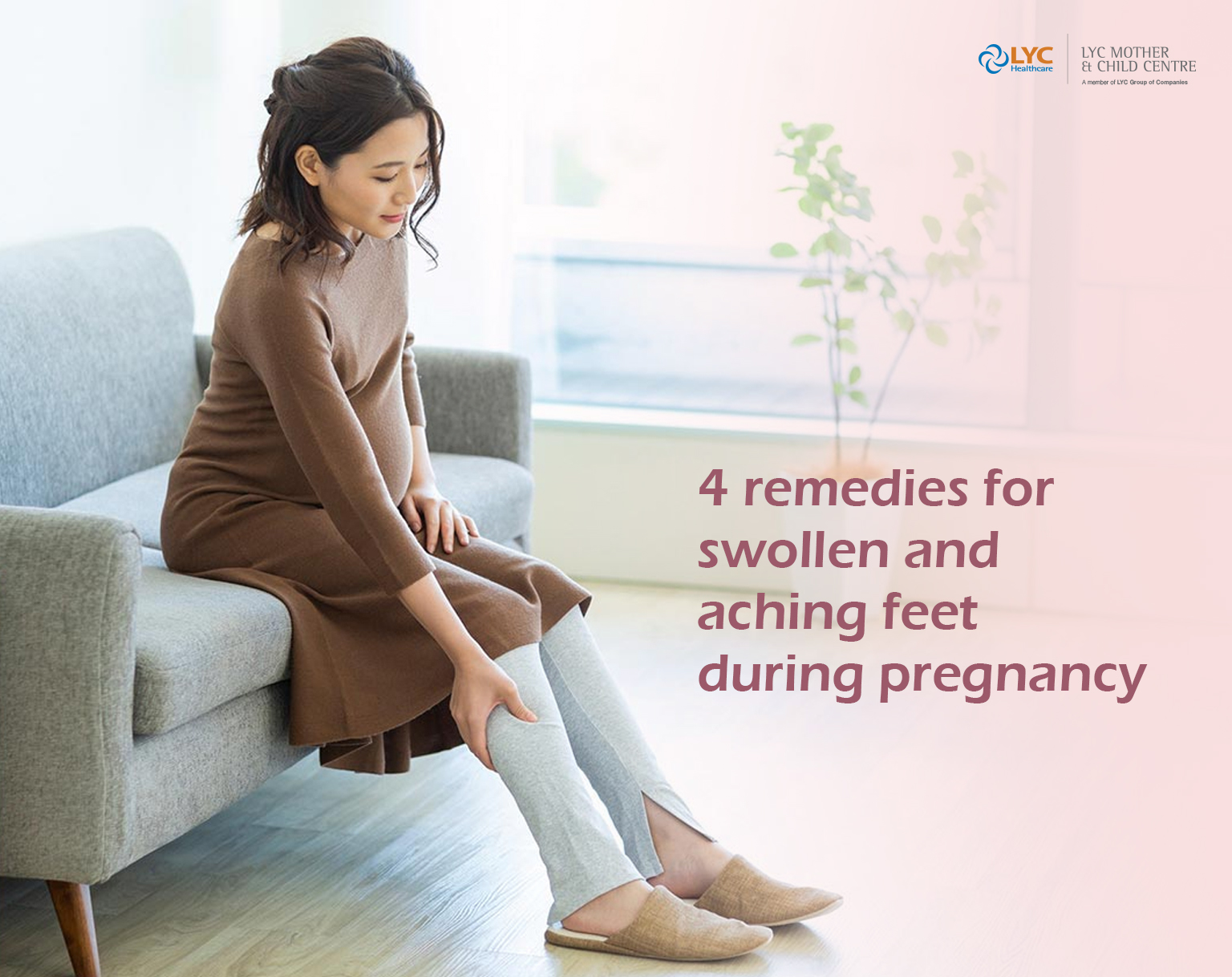
If your ankles look swollen and you find it hard to fit into your shoes, it's because your body is supporting the healthy growth of the fetus. The extra fluid produced in the body slows down blood circulation, causing blood to pool in your lower extremities, causing feet to swell.
During pregnancy, your body produces more relaxin, a hormone that helps tendons, ligaments, joints, and muscles relax and also helps open your pelvis for labour while also relaxing the tendons and ligaments in your feet.
The combination of extra pounds and hormones during pregnancy can cause your feet to not only widen, but also flatten and lengthen. Don't worry, the swelling in your leg or ankle will decrease within a week or two after your baby is born.
Here are four ways to deal with swollen feet during pregnancy:
During pregnancy, avoid wearing socks with a tight band at the top because it may prevent the backflow of blood to the legs and make the swelling worse. This can increase the risk of developing a blood clot – which is five times higher for pregnant mothers.
You can consider wearing knee-high compression stockings to relieve pain. Compression stockings will gradually increase the pressure on the legs and move some of the excess fluid back into the blood vessels and other parts of the body.
Compression socks also prevent the formation of new varicose veins, and the risk is four times higher for mothers over the age of 35. They start out as small bumps under the skin. Compression stockings can prevent backflow and swelling, as well as reducing the pain and discomfort caused.
You can easily improve circulation during rest or sleep by elevating the legs slightly above heart level when reading, watching TV or sitting down for a break. Do this several times a day at 15 to 20 minute intervals. Such a simple adjustment of body position helps to reduce pressure in the veins that carry blood to your heart.
While you can safely sleep on either side during pregnancy, it is recommended that you sleep on your left side to avoid putting pressure on the inferior vena cava, a large vein that carries blood from the lower extremities to the heart.
Soak your feet and ankles in cool water for 20 minutes every two or three days to minimise swelling.
However, make sure the water temperature is moderate and not too cold as cold water causes the smaller blood vessels close to the skin to constrict, reducing blood flow to and swelling within the affected area. However, if the water is too cold, it will have the opposite effect.
Also, hydrotherapy is a great way to relieve stress and pain, whether you sway your feet while standing or dangle your feet while in a sitting position.
Shoes that don't provide support or are uncomfortable to wear can lead to more leg and back pain. Even if your feet return to their pre-pregnancy size postpartum, you'll definitely feel more comfortable wearing shoes that fit well and support the extra weight.
It is recommended that mothers wear shoes with low heels but not flats for good support, such as sneakers. Many pregnant mothers prefer shoes with mesh, which allow the feet to breathe and slip on and off easily, so they don’t have to keep bending over during pregnancy.